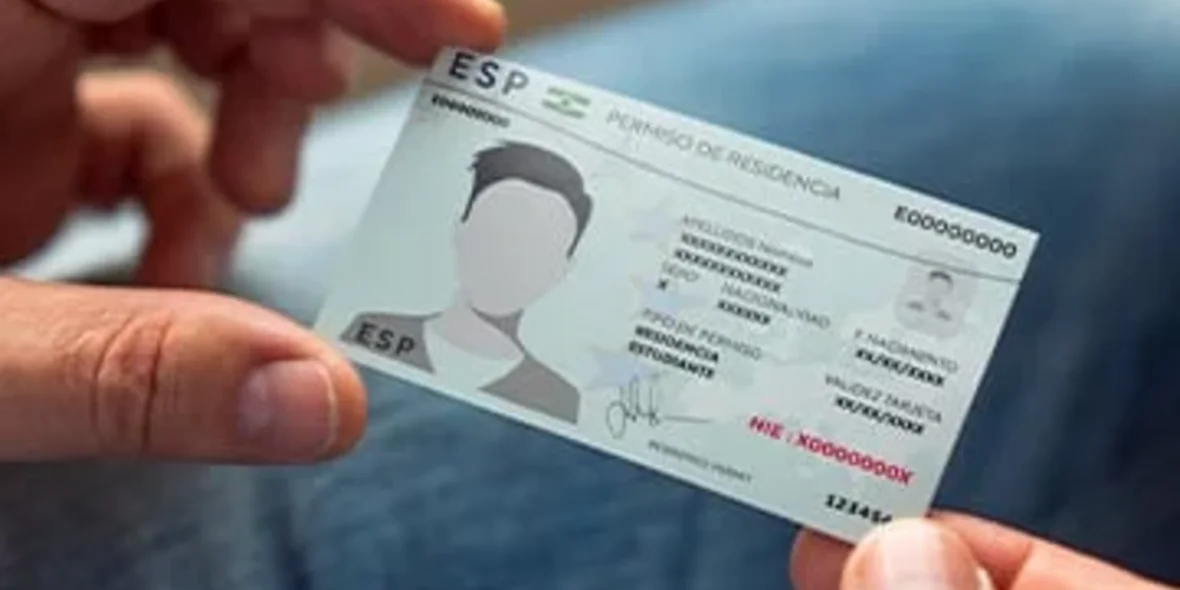
CIF (NIF) in Spain: How to Get a Tax Number for a Company
CIF (Código de Identificación Fiscal) is the tax identification code that was used in Spain to designate legal entities until 2008. It served as the primary instrument for tax registration and accounting of companies, associations, and foundations.
Although the CIF was officially replaced by the NIF in 2008, the term «CIF» remains widely used in practice. It can still be found in contracts, invoices, on official company websites, and in business correspondence.
Today, having a CIF/NIF is mandatory for any business operating in Spain. In this article, we will explain what CIF is, who needs it, and how to obtain it.
What Is CIF (or NIF) and Why It Is Needed
Spain’s tax identification system is structured so that every economic entity has a unique number used to track its tax and financial activities. For individuals, this identifier is the NIF (Número de Identificación Fiscal), while for foreign residents it is the NIE (Número de Identidad de Extranjero). Legal entities traditionally received a CIF, but following an administrative reform, its function was integrated into the NIF system.
This number serves several essential purposes:
- Fiscal identification. The CIF is used for registration, control, and tracking of all tax operations of a legal entity, including corporate tax, VAT, employee income tax, and other mandatory payments.
- Legal recognition. The CIF confirms that the organization is officially registered and recognized as an economic operator.
- Financial operations. Banks and credit institutions require a CIF when opening corporate bank accounts, arranging credit lines, mortgages, or deposits.
- Commercial transactions. When issuing invoices (facturas) to partners and clients, companies must include their CIF. The absence of this number renders the invoice legally invalid for accounting and tax purposes.
Who needs a CIF in Spain:
- Spanish legal entities. This includes all forms of commercial companies registered in the Registro Mercantil (Commercial Registry).
- Foreign companies establishing a branch or representative office in Spain. Any foreign company conducting business in Spain is required to obtain an NIF.
- Non-profit organizations and homeowners’ associations (Asociaciones, Fundaciones, Comunidades de Propietarios). The obligation to obtain a CIF/NIF also applies to entities not engaged in profit-making activities.
- Self-employed individuals (autónomos) and private persons. Spanish residents need an NIF, while foreign individuals are identified with a NIE.
How to Obtain a CIF/NIF in Spain
Before a legal entity can receive its CIF/NIF code in Spain, it must first prepare a complete set of incorporation documents.
The first step is to obtain a Certificate of Company Name Availability (Certificación negativa del nombre) from the Central Commercial Registry (Registro Mercantil Central). This document confirms that the chosen company name is unique and not already in use by another legal entity.
Applications can be submitted online through the Central Commercial Registry’s website. The procedure costs between €16 and €25, and the certificate is valid for three months. It must be presented to a notary when the company is formally incorporated.
Once the company name is reserved, the next step is to draw up a notarial deed of incorporation (escritura pública de constitución). The notary authenticates this document and assigns it a notarial protocol number (protocolo notarial).
At this stage, the company must also apply for a provisional NIF (NIF provisional) using Form 036 (Declaración censal de alta, modificación y baja en el Censo de empresarios, profesionales y retenedores).
Required documents for NIF number in Spain:
- A copy of the notarial deed of incorporation.
- The Certificate of Company Name Availability.
- Passports or NIE numbers of all founders.
- Proof of the registered business address (e.g., a lease agreement or utility bill).
Once the documents are submitted, the Spanish Tax Agency (Agencia Tributaria) issues a provisional tax identification number — NIF-V (Número de Identificación Fiscal provisional).
This temporary number allows the company to perform limited operations such as opening a corporate bank account, depositing the share capital, and paying notarial fees. Normally, obtaining the provisional number takes 2–5 business days.
To complete company registration, a corporate bank account must be opened, and the minimum share capital must be deposited. The bank issues a Certificate of Capital Deposit (Certificado bancario del ingreso del capital social), which is then presented to the notary and the Commercial Registry (Registro Mercantil).
Local banks are legally required to identify clients using a valid NIF/CIF number in Spain — a provisional number is acceptable for this purpose.
After obtaining the provisional NIF and the notarized deed of incorporation, the company must submit the documentation to the provincial Commercial Registry (Registro Mercantil Provincial) corresponding to its registered address. Once registered, the company acquires official legal status.
In the final stage, the incorporation documents bearing the Registry’s seal must be submitted to the Agencia Tributaria to replace the provisional NIF-V with a definitive NIF. The entire process of obtaining the final NIF typically takes 10 to 20 business days.
Costs and Related Expenses
The process of obtaining a CIF/NIF itself is free of charge — the Spanish Tax Agency (Agencia Tributaria) does not collect any fee for assigning the number.
However, the registration of a legal entity in Spain inevitably involves several administrative, notarial, and associated expenses.
Mandatory government fees and notarial costs:
|
Stage |
Description |
Average cost |
|
Name reservation |
Registration of a unique company name with the Registro Mercantil Central |
€16–25 |
|
Notarial deed of incorporation (Escritura de constitución) |
Authentication of incorporation documents by a notary |
€300–800 |
|
Registration in the Provincial Commercial Registry (Registro Mercantil Provincial) |
Entry of the company into the commercial registry corresponding to its registered address |
€100–250 |
|
Copies and document legalization |
Certified copies of the company’s bylaws, powers of attorney, and incorporation acts |
€30–100 |
|
Official translations (for foreign documents) |
Translation by a sworn translator (traductor jurado) |
€25–50 per page |
The total administrative and notarial expenses for NIF documents in Spain typically range from €500 to €1200. In addition, there are capital and banking requirements. The minimum share capital for a Sociedad Limitada (S.L.) is €3000. For a Sociedad Anónima (S.A.), the minimum is €60,000, of which at least 25% must be paid in at the time of incorporation. When opening a corporate bank account, Spanish banks usually charge a one-time setup fee of €50—100 and a monthly maintenance fee of €10—20.
Many foreign entrepreneurs and investors use the services of gestores — professional agents who assist with the registration process and documentation. Their services are not free and vary depending on the scope of work.
Gestores fees for NIF/CIF documents in Spain:
|
Type of service |
Average cost |
|
Full company incorporation support (including preparation of bylaws, submission of Form 036, and registry filings) |
€300–600 |
|
Ongoing accounting and tax filing services |
€80–200 per month |
|
Legal or tax consultation regarding the registration of a foreign branch |
€100–250 per session |
NIF for Individuals in Spain
The NIF (Número de Identificación Fiscal) is mandatory for all Spanish citizens and residents, as well as for foreign nationals engaged in any type of economic, administrative, or property-related activity in Spain, including:
- Registration with the tax authorities (Agencia Tributaria).
- Filing income tax returns (IRPF — Impuesto sobre la Renta de las Personas Físicas).
- Purchasing real estate, vehicles, or company shares.
- Opening a bank account.
- Receiving salaries, scholarships, or pensions.
- Signing an employment contract.
- Registering as a self-employed professional (autónomo).
Local citizens can check their NIF number in Spain using their national identity number (DNI — Documento Nacional de Identidad), as the two should be identical. Foreigners need an NIE, which can be obtained within Spain through the Spanish Foreigners Office (Oficina de Extranjeros) or at a National Police station (Policía Nacional).
To do so, it is sufficient to submit the completed EX-15 form, present a passport, and provide proof of the purpose of the request (such as housing rental, employment, or property purchase). Outside of Spain, the procedure is handled through the Spanish consulate.
The NIE number is permanent, even if your immigration status changes (for example, from student to worker). In the event of loss or theft of the NIE card, you must request a replacement at the nearest police station or Spanish consulate.
Frequently Asked Questions about CIF/NIF in Spain
What is the meaning of NIF in Spain?
The NIF (Número de Identificación Fiscal) is Spain’s tax identification number used to identify both individuals and legal entities for all tax and administrative purposes.
- For Spanish citizens, the NIF is identical to their national identity number — the DNI (Documento Nacional de Identidad).
- For foreign residents, the equivalent is the NIE (Número de Identidad de Extranjero), issued by the Policía Nacional.
- For companies and organizations, the NIF serves as the unique identifier for tax filings, invoicing, and financial operations — it replaced the former CIF (Código de Identificación Fiscal) in 2008.
In essence, the NIF functions as Spain’s universal taxpayer identification number, required for activities such as employment, opening bank accounts, buying property, or conducting business operations.
What is the difference between CIF and NIF in Spain?
The CIF (Código de Identificación Fiscal) was the former designation for a company’s tax identification number in Spain, used until 2008. Following a tax reform, it was officially replaced by the NIF (Número de Identificación Fiscal).
There is no functional difference between the two: both the CIF and the NIF of a legal entity serve the same purposes — tax registration, invoicing, accounting, and interactions with banks and public authorities.
Is it possible to look up a company by its NIF in Spain?
Searching for a company by its NIF (Número de Identificación Fiscal) is both official and legal. There are three primary sources for NIF verification in Spain:
- Agencia Tributaria (AEAT). The Consulta de terceros service confirms that a NIF exists, is active, and corresponds to a specific legal entity.
- Registro Mercantil Central (RMC). The Central Commercial Registry, where one can request an extract (nota simple) containing the company’s registered address, list of directors, share capital, and registration number.
- VIES (VAT Information Exchange System). For companies registered as VAT payers within the EU; NIFs are verified with the prefix ES.
If discrepancies arise between data from AEAT and the Commercial Registry, the company is considered fiscally invalid, and its invoices (facturas) may be rejected for VAT deduction (IVA) purposes.
Author
I write informative articles about real estate, investments, job opportunities, taxes, etc.
























